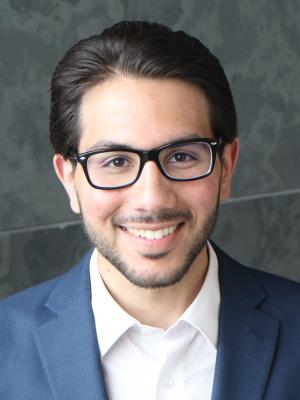
Neurodevelopment, Neurophysiology, Neuroplasticity
B.A., Neuroscience, Harvard University, 2023
M.Sc., Physiology, Anatomy and Genetics, University of Oxford, 2024
Mohammed graduated summa cum laude from Harvard University in 2023 with a B.A. in Neuroscience and a minor in Global Health and Health Policy. For his undergraduate thesis project in Prof. Takao Hensch’s lab, Mohammed investigated the developmental role of the Shank3 autism risk gene in reversible cognitive rigidity using a Shank3 conditional knock-in mouse model and presented a novel synaptic protein relationship that may underlie autistic-like cognitive rigidity. Mohammed received the Thomas Temple Hoopes Prize for his thesis project, along with the Mary Gordon Roberts Mind, Brain, & Behavior Research Fellowship. During his time at Harvard, Mohammed also conducted research in the Department of Neurosurgery at Brigham and Women’s Hospital and at the Institute for Health Metrics and Evaluation as a Harvard Global Health Institute Fellow and Mindich Service Fellow. Outside of lab, Mohammed enjoyed teaching neuroscience and chemistry as a teaching fellow, along with volunteering at Massachusetts General Hospital and the Harvard Square Homeless Shelter.
Mohammed’s undergraduate research inspired an interest in developmental plasticity and flexible reward learning, which motivated him to pursue an M.Sc. by Research degree in Physiology, Anatomy, and Genetics at the University of Oxford under the mentorship of Prof. Zoltán Molnár and Prof. Ed Mann. For his M.Sc. thesis project, Mohammed employed in-vitro electrophysiological techniques such as whole-cell patch clamp and multielectrode array recordings to study the dopaminergic modulation of deep-layer neuronal network activity in the murine medial prefrontal cortex and its role in gating cortical arousal and mediating anxiety behavior.
As an NIH OxCam Scholar, Mohammed seeks to combine in-vivo and in-vitro electrophysiological and anatomical techniques to better understand the interplay between synaptic molecular mechanisms and network activity involved in flexible reward learning during development under the mentorship of Dr. David Leopold at the NIMH and Prof. Zoltán Molnár and Prof. Ed Mann at Oxford. After his PhD, Mohammed plans to attend medical school with the long-term goal of becoming a physician-scientist and improving therapies that target altered cortical circuit dynamics.
Dr. David Leopold (NIMH), Prof. Zoltán Molnár (Oxford),
and Prof. Ed Mann (Oxford)


